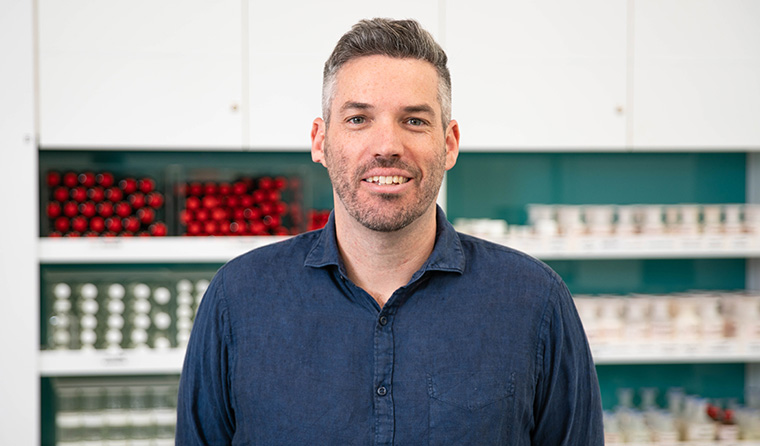News
Saline spray to antibiotics: GPs and prescribing placebos
A study showing Australian GPs have used placebos raises questions in areas such as clinical benefits, patient consent, and antimicrobial resistance.
 Antibiotics are the most commonly prescribed active placebos in general practice, according to the study.
Antibiotics are the most commonly prescribed active placebos in general practice, according to the study.
Thirty-nine percent of Australian GPs have given patients an inert placebo and 77% have prescribed an active one.
Such were the findings of new research, published in the Australian Journal of General Practice.
The study was conducted using a cross-sectional internet-based survey of a random sample of Australian GPs from a national database. A total of 641 GPs opened the email invitation, and 136 took part.
Of the total sample, 14% reported prescribing inert placebos in general practice at least once a month.
The most commonly used inert placebo treatments were saline nasal spray (32%) and inert aqueous creams (23%).
Meanwhile, active placebos were most commonly used to treat self-limiting viral infections (39%), sleep problems (21%) and pain-related conditions (21%).
Antibiotics were the most commonly prescribed active placebos.
Associate Professor Ben Colagiuri from the University of Sydney School of Psychology was one of the authors of this paper. He told newsGP he was not surprised by these findings, saying previous studies performed overseas yielded similar results.
‘I think it’s common,’ he said of the practice of GPs giving patients placebos.
Associate Professor Colagiuri was heartened, however, to see the main reason behind GPs turning to such treatments.
‘The most common reason is that they felt the placebo would benefit their patient; they felt it would help improve their symptoms,’ he said.
Associate Professor Colagiuri believes that idea ties in with greater understanding among medical professionals of the benefits of the placebo effect.
‘It was an older view that if someone responded to a placebo, they were just making it up,’ he said.
‘But I think more recently, because of a lot of research in Australia and around the world, we know the placebo effect can have genuine physiological benefits and I think GPs are more aware of that now.’
According to the survey, approximately seven out of 10 GPs believe placebos have ‘genuine benefits’.
‘In the medical community there is more awareness of the placebo effect as a genuine phenomenon,’ Associate Professor Colagiuri said.
‘We know that placebos can help with a whole range of conditions, including pain, nausea, sleep, depression, anxiety and even more severe conditions, like Parkinson’s [disease].’
When it comes to pain relief, for example, Associate Professor Colagiuri said the brain releases opioids in response to taking a placebo, which they have been told is an analgesic. This process therefore leads to pain-relieving effects.
Another issue raised by the research, however, is the notion of ethicality – namely, informed consent. While GPs may prescribe a placebo in a bid to help a patient, there are concerns about doing so without their approval.
‘Most patients would probably never consider that they could be given a placebo,’ Associate Professor Colagiuri said.
While patients might not be aware of doctors’ use of placebos, GPs remain divided as to whether such use without informed consent is ethical.
‘Half of the GPs surveyed felt that giving a placebo deceptively was not ethical,’ he said. ‘A lot of the GPs already don’t think you should give a placebo without actually informing the patient about what you’re giving them.
‘But I think it is bit difficult to categorically say it’s “unethical”, because I do think one of the things that came out of the survey is that GPs are primarily trying to do this to help their patients.’

Associate Professor Ben Colagiuri believes it is common for GPs to give patients placebos.
The research also uncovered another potentially concerning reason GPs turn to placebos. The second most frequently stated reason for their use was because a patient ‘expected or demanded’ a treatment.
‘In [those] cases, GPs were giving placebos because it was a scenario where there was no good active treatment available to help that patient, and the patient was still demanding they receive some form of treatment,’ Associate Professor Colagiuri said.
It is thus not surprising that the most common genuine medication given as a placebo is an antibiotic for a viral infection.
‘It’s difficult to estimate how many patients that’s happening for, but it’s probably the most common scenario,’ Associate Professor Colagiuri said.
This is a concern in an era of increasing antimicrobial resistance.
As the use of placebos is so common in general practice, Associate Professor Colagiuri believes it is time to institute evidence-based systems in response.
‘It is something that’s happening frequently enough to think about whether there should be some guidelines around placebo use in Australia,’ he said.
Log in below to join the conversation.
antbiotics placebo placebo effect research
newsGP weekly poll
How often do patients ask you about weight-loss medications such as semaglutide or tirzepatide?